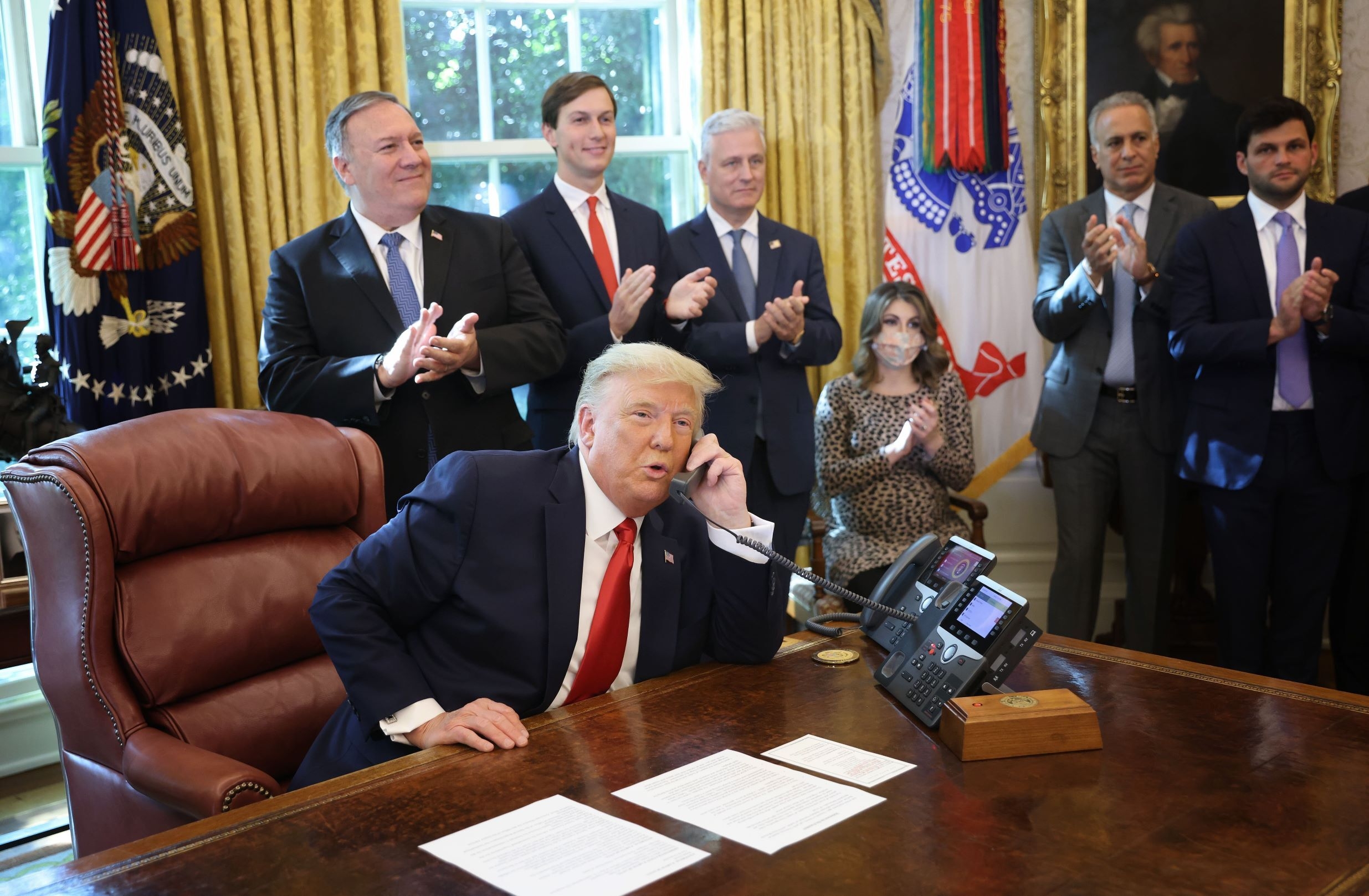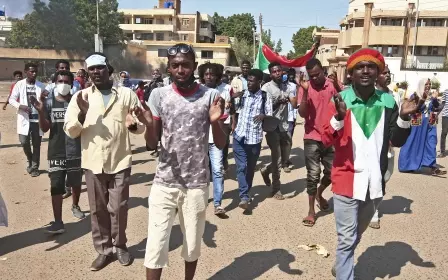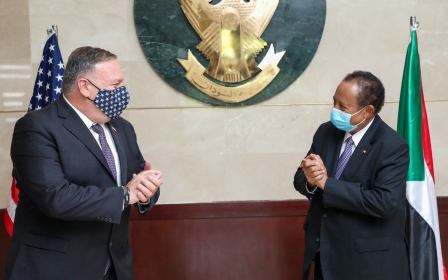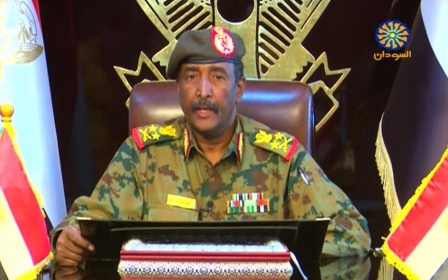Sudan agrees to normalise relations with Israel, Trump announces

US President Donald Trump said on Friday that Sudan has agreed to normalise diplomatic ties with Israel, a move denounced by Palestinians as a "new stab in the back".
The move was announced on the heels of Washington's decision to remove Khartoum from the State Department's State Sponsors of Terrorism (SST) list.
The agreement was sealed in a phone call between Trump and Israeli Prime Minister Benjamin Netanyahu, Sudanese Prime Minister Abdalla Hamdok and Transitional Council Head Abdel Fattah al-Burhan, senior US officials said.
Speaking before reporters in the Oval Office, Trump asked Israeli Prime Minister Benjamin Netanyahu, who was on speaker phone, if he believed his Democratic presidential rival Joe Biden could have helped broker such a deal.
"Do you think Sleepy Joe could have made this deal Bibi? Somehow I don't think so," Trump asked.
New MEE newsletter: Jerusalem Dispatch
Sign up to get the latest insights and analysis on Israel-Palestine, alongside Turkey Unpacked and other MEE newsletters
Netanyahu ignored the prompt and answered: "One thing I can tell you is we appreciate the help for peace from anyone in America, and we appreciate what you've done enormously."
Netanyahu also welcomed what he called a rapidly expanding "circle of peace" and the start of a "new era".
The normalisation deal represents a foreign policy win for Trump less than two weeks before the 3 November election.
Meanwhile, the SST delisting is set to be a major boost for Khartoum's struggling economy and a pivotal step in Sudan's efforts to reintegrate into the international community after last year's uprising toppled longtime leader Omar al-Bashir.
In a post to Twitter, Sudan's Sovereign Council said the SST delisting marked "a historic day for Sudan and its glorious revolution". It did not immediately comment on its diplomatic agreement with Israel.
Israel signed US-brokered diplomatic agreements with the United Arab Emirates and Bahrain last month, breaking a longstanding consensus among Arab states that normalisation with Israel must be contingent on a resolution to the Israeli occupation and the establishment of an independent Palestinian state.
It had been speculated that Sudan could make a deal with Israel in exchange for removal from the US terror designation, but on Monday, Trump said that Khartoum's removal would take place in exchange for a $335m payment to "US terror victims and families".
During Friday's news conference, Secretary of State Mike Pompeo, standing next to Trump, did not say that the two deals were linked.
"They both have one thing in common, they make sense for the Sudanese people," he said.
Speaking in Ramallah in the occupied West Bank, Palestine Liberation Organisation official Wasel Abu Youssef said the decision "will not shake the Palestinians' faith in their cause and in continuing their struggle".
"Sudan's joining others who normalised ties with the state of the Israeli occupation represents a new stab in the back of the Palestinian people and a betrayal of the just Palestinian cause," Abu Youssef said.
US push for normalisation with Israel
Both Israeli and US government figures have repeatedly hinted for months that other Arab countries would follow in the footsteps of the UAE and Bahrain, with Sudan being one of the countries at the top of the prospective list.
In February, Israeli Prime Minister Benjamin Netanyahu met in secret with Abdel Fattah al-Burhan, the chairman of Sudan's Sovereign Council, in Uganda, and the two leaders reportedly agreed to start the process of normalising ties.
In August, the UAE arranged an unannounced meeting between Mohamed Hamdan Dagalo (also known as Hemeti), the vice-chair of the Sovereign Council, and Yossi Cohen, the head of Israel's Mossad spy agency, to discuss prospects for normalisation.
Pompeo also visited Khartoum in August on a regional tour to push further normalisation deals. At the time, Sudan said normalisation with Israel was not within the transitional government's mandate.
Sudanese Prime Minister Abdalla Hamdok had said that the terrorism designation and normalisation with Israel should be viewed as two separate diplomatic processes.
Israel and Sudan had not enjoyed official bilateral relations before Friday's deal, although Israel has had close relations with South Sudan, which split from Sudan in 2011.
Shortly before he was removed from power, Bashir said he was advised to normalise ties with Israel, a request he rejected.
Middle East Eye delivers independent and unrivalled coverage and analysis of the Middle East, North Africa and beyond. To learn more about republishing this content and the associated fees, please fill out this form. More about MEE can be found here.





